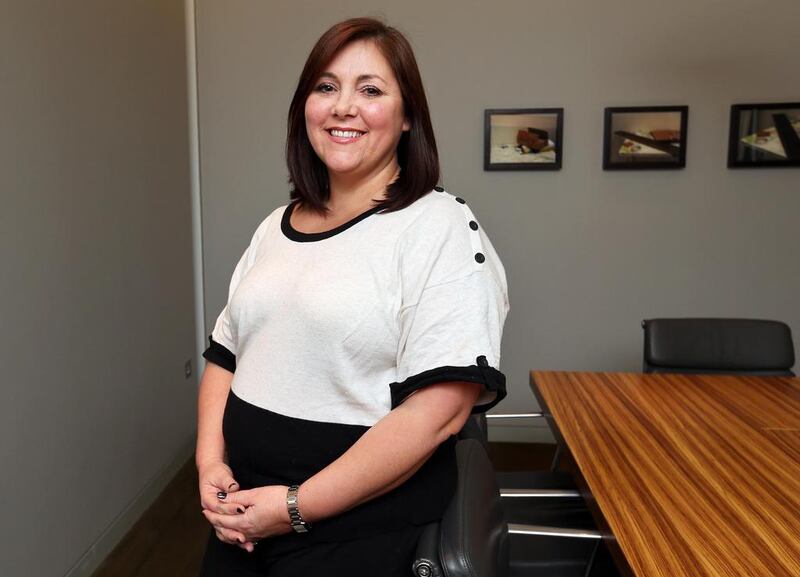As the head lawyer for all things renewable at the British law firm Eversheds, Michelle Davies has worked with governments and companies across the Middle East on their solar and wind power programmes.
She was named the Woman of the Year in November by the Middle East Solar Industry Association, a Dubai-based group where she also serves as a board member, for her work with governments in the UAE, Jordan and Saudi Arabia in shaping their solar policy and regulation.
Her work in the region is growing as Jordan embarks on its first utility-scale wind project (with financial backing from the UAE) and Saudi Arabia targets building a whopping 41 gigawatts of solar power in the next two decades.
Those plans could make or break the future of one particular technology – concentrated solar power (CSP), which uses mirrors to amplify the sun’s heat to produce the steam needed to generate power. With the potential to produce energy even at night, CSP could become the answer to the region’s electricity gap. But that depends on a single country – Saudi Arabia – says Ms Davies.
What is the future of the solar market?
Because a lot of the technologies are evolving, there’s still room for the cost to go down. So if a particular market declines or contracts, that can have an impact globally. For example, Saudi Arabia was looking to implement a huge concentrated solar power programme. It was looking at a 41GW solar programme, 25GW of which was to be CSP, and that in itself would have created a viable global CSP market because you would have a sufficient pipeline to encourage investment, make the technology more viable from a cost perspective and bring the cost down.
What are Chinese companies doing to take advantage of that?
The European PV [photovoltaic solar panel] market is on the decline, so I’ve got meeting after meeting with Chinese companies looking to break into this market, and what they are doing is adapting to the changing environments in which their panels have to work. They really are fantastic at this. They are all focused on creating modules that withstand the particular conditions that exist in this part of the world, and getting highly credible insurance to stand behind them. So they are understanding the market which they’re entering, but ensuring that they have the insurance to make them bankable.
What are the challenges to financing such projects?
The key challenge for the Saudi banks is that history that when they’ve funded conventional energy projects, the government has taken a significant equity stake, often 50 per cent in the project. What that means for the banks is that they know that the government is not going to allow that project to fail. If the programme is significant, it’s quite possible the government won’t be able to take a significant equity stake in all of the projects. If that doesn’t happen, then the banks are going to have to provide finance on a true non-recourse basis, ie the banks don’t have an equity holder they can rely on to save the project if anything goes wrong and pump money in and sort it out. So they are totally dependent on the performance of that project. If you go out into the Saudi desert, ownership can be quite difficult because it’s an unregistered land system. That’s why the smart people in the industry are teaming up with real estate companies that have owned this land for a long time and can establish ownership. So those are the joint ventures that are going quite quickly.
Photovoltaic solar technology has dropped dramatically in price in recent years thanks to Chinese producers catering to European clients. What’s the future of concentrated solar power?
The Middle East represents a huge opportunity for CSP because it is the one market which can allow CSP to develop on a major scale, which will then enable the technology to become more viable and cost-effective. There are those in the industry that believe if CSP does not happen in Saudi Arabia, it could impact the whole market significantly because there is nowhere else that is going to provide the huge volume of pipeline that is needed. CSP is a critically important technology for the Middle East for the simple reason that it allows the energy to be stored, and therefore the intermittency that would otherwise be generated doesn’t have the same impact on the grid. If you can store the energy from 2 or 3pm, when it gets hot, to the time people are going to use it at 8pm when the air conditioning is on, that means you’re not having as big of an impact on the grid. That’s really important. The whole of the Middle East region makes sense for CSP, but it needs a particular country to drive it.
ayee@thenational.ae





